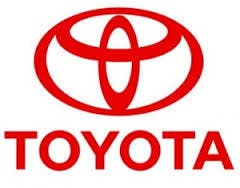Investors interested in adding an auto stock to their portfolio should consider Toyota Motor Corporation (ADR) (NYSE:TM), not Tesla Motors Inc (NASDAQ:TSLA). Although the latter has become a hot investment, the former should offer better, safer returns.

Toyota bests its American rivals
Toyota Motor Corporation (ADR) (NYSE:TM) stock jumped over 6% on Friday. The Japanese automaker said U.S. sales increased 17% in the month of July. That was better than its American rival, Ford Motor Company (NYSE:F), whose sales rose just 11%.
Despite the increase, Ford’s number disappointed analysts, who were looking for more. Ford Motor Company (NYSE:F) cited tight inventory as a key reason, including shortages of its Fusion, Escape, and Explorer.
At this point, it’s probably too soon to say with any conviction, but if Toyota Motor Corporation (ADR) (NYSE:TM) continues to best its American rivals in the coming months, investors might consider the effects of the yen.
In an interview with Bloomberg back in June, Ford Motor Company (NYSE:F)’s CEO Alan Mulally declared that Japan was “manipulating” the value of the yen. Of course, Mulally isn’t the first American auto CEO to make such a claim, and he probably won’t be the last.
Although Toyota Motor Corporation (ADR) (NYSE:TM) has moved much of its production to foreign markets in recent years, the company still benefits from a cheap yen. In fact, back in March, Morgan Stanley said the yen’s decline was benefiting Toyota to the tune of $1,500 per car.
Abenomics and Toyota
Since the election of Japan’s Prime Minister Shinzo Abe back in December, the yen has been trading lower against the dollar. At the beginning of last November, it took 80 yen to buy a U.S. dollar; today it’s around 100.
Abe’s time as prime minister has been dedicated to getting Japan out of its two decade long struggle with deflation. Abe has pushed the Bank of Japan to aggressively ease monetary policy, thereby weakening the yen.
Although Abe and the BoJ would claim that this is primarily intended to boost demand in Japan’s own economy, it has the effect of giving Japan’s exporters (like Toyota Motor Corporation (ADR) (NYSE:TM)) an advantage over American rivals like Ford Motor Company (NYSE:F).
With the currency advantage, Toyota Motor Corporation (ADR) (NYSE:TM) can invest in R&D, cut the price of its vehicles, or return capital to shareholders. The company said its raising capital spending by 10% this year, and plans to pay a higher dividend in the future.
Tesla’s short squeeze
Over the last three months, Toyota Motor Corporation (ADR) (NYSE:TM)’s stock is up about 17% — nearly three times better than the broader S&P 500. Yet, that 17% gain looks like a joke when compared to Tesla Motors Inc (NASDAQ:TSLA) — the electric car maker is up more than 150% since early May.
Tesla Motors Inc (NASDAQ:TSLA)’s rally has largely been the product of a short squeeze. In late April, nearly half of Tesla’s floating shares had been sold short. When the company started reporting good news (paying off its government loans, better than expected earnings, fast charging network), shorts began to cover.
As short sellers were forced to buy back the shares they had previously sold, Tesla Motors Inc (NASDAQ:TSLA) shares moved higher, in turn, forcing even more shorts to cover. Now, Tesla’s short interest has fallen to about 23% — still high on a relative basis, but significantly less than just three months prior.
But the problem is that short squeezes can end in disaster. If most of the buying is being done by covering shorts (and not committed longs), the demand for Tesla Motors Inc (NASDAQ:TSLA) shares can dry up. When that happens, shares could plunge.
In recent years, that same phenomenon has played out in Netflix, Inc. (NASDAQ:NFLX) and BlackBerry Ltd (NASDAQ:BBRY). Netflix went from $50 to $300 over 18 months, burning short sellers like Whitney Tilson along the way. However, Netflix eventually disappointed, and shares rapidly fell back to $50.
Likewise, BlackBerry nearly tripled from last October to January. Short sellers, who had been banking on the company’s impending bankruptcy, became fearful of the possibility that BB10 could rejuvenate the company. However, when the company whiffed on earnings, BlackBerry’s market cap was nearly cut in half.
Fuel of the future
Admittedly, a short-term correction should be of no concern to committed, long-term shareholders (two years later Netflix, Inc. (NASDAQ:NFLX) is back near $250). For them, Tesla Motors Inc (NASDAQ:TSLA) represents the vehicle of the future: a quality, long-range, plug-in electric.
But even there, investors should be wary. Tesla Motors Inc (NASDAQ:TSLA)’s fully all-electric Model S is certainly impressive, but the car of future might be running on natural gas — not batteries.




